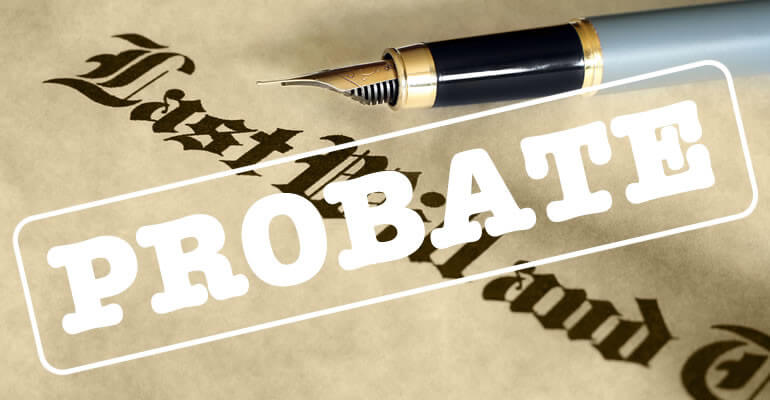Understanding Intestacy Laws in Texas: What Happens When There’s No Will?
When an individual passes away without a will, their estate is subject to intestacy laws, which dictate how assets are distributed. In Texas, these laws ensure that the deceased's property is allocated to heirs based on a defined hierarchy, prioritizing spouses and children, followed by other relatives. Understanding these laws is crucial for individuals to navigate the complexities of estate distribution when no will exists.
For example, if a person dies intestate with children and a spouse, the spouse may inherit a portion of the community property while the children inherit the remaining assets. This process can lead to disputes among family members, making it essential to understand one’s rights and the implications of intestacy laws in Texas.
Probate Alternatives: Exploring Options Beyond Traditional Probate
Many individuals seek alternatives to traditional probate to streamline the estate settlement process and reduce associated costs. Options such as living trusts, transfer-on-death deeds, and small estate affidavits can help bypass probate court, making the transfer of assets more efficient and less burdensome for heirs.
For instance, a living trust allows a person to transfer assets into a trust during their lifetime, which can then be distributed to beneficiaries without going through probate upon their death. This not only saves time but also maintains privacy, as probate proceedings are public records.
Common Mistakes in Estate Planning: What to Avoid
Estate planning is a critical process that, if done incorrectly, can lead to significant legal and financial complications. Common mistakes include failing to update wills after major life events, not considering tax implications, and neglecting to communicate plans with family members. These oversights can create confusion and conflict among heirs.
For example, if a will is not updated after a divorce, an ex-spouse may inherit assets unintentionally, leading to disputes. Additionally, overlooking tax strategies can result in a larger tax burden on the estate, reducing the amount passed down to beneficiaries. Proper planning and regular reviews of estate documents can help mitigate these risks.
The Role of Executors in the Texas Probate Process
The executor of an estate plays a vital role in the probate process, responsible for managing the deceased's assets, settling debts, and ensuring that the estate is distributed according to the will. It is a position that requires organization, attention to detail, and sometimes, legal knowledge to navigate the complexities of probate law in Texas.
Executors must adhere to specific duties, such as notifying heirs, filing necessary court documents, and maintaining accurate records of estate transactions. Failing to fulfill these responsibilities can lead to legal challenges or personal liability, making it essential for executors to understand their roles and seek guidance when needed.
Understanding Intestacy Laws in Texas: What Happens When There’s No Will?
When an individual passes away without a will, their estate is subject to intestacy laws, which dictate how assets are distributed. In Texas, these laws ensure that the deceased's property is allocated to heirs based on a defined hierarchy, prioritizing spouses and children, followed by other relatives. Understanding these laws is crucial for individuals to navigate the complexities of estate distribution when no will exists.
For example, if a person dies intestate with children and a spouse, the spouse may inherit a portion of the community property while the children inherit the remaining assets. This process can lead to disputes among family members, making it essential to understand one’s rights and the implications of intestacy laws in Texas.
Probate Alternatives: Exploring Options Beyond Traditional Probate
Many individuals seek alternatives to traditional probate to streamline the estate settlement process and reduce associated costs. Options such as living trusts, transfer-on-death deeds, and small estate affidavits can help bypass probate court, making the transfer of assets more efficient and less burdensome for heirs.
For instance, a living trust allows a person to transfer assets into a trust during their lifetime, which can then be distributed to beneficiaries without going through probate upon their death. This not only saves time but also maintains privacy, as probate proceedings are public records.
Common Mistakes in Estate Planning: What to Avoid
Estate planning is a critical process that, if done incorrectly, can lead to significant legal and financial complications. Common mistakes include failing to update wills after major life events, not considering tax implications, and neglecting to communicate plans with family members. These oversights can create confusion and conflict among heirs.
For example, if a will is not updated after a divorce, an ex-spouse may inherit assets unintentionally, leading to disputes. Additionally, overlooking tax strategies can result in a larger tax burden on the estate, reducing the amount passed down to beneficiaries. Proper planning and regular reviews of estate documents can help mitigate these risks.
The Role of Executors in the Texas Probate Process
The executor of an estate plays a vital role in the probate process, responsible for managing the deceased's assets, settling debts, and ensuring that the estate is distributed according to the will. It is a position that requires organization, attention to detail, and sometimes, legal knowledge to navigate the complexities of probate law in Texas.
Executors must adhere to specific duties, such as notifying heirs, filing necessary court documents, and maintaining accurate records of estate transactions. Failing to fulfill these responsibilities can lead to legal challenges or personal liability, making it essential for executors to understand their roles and seek guidance when needed.










